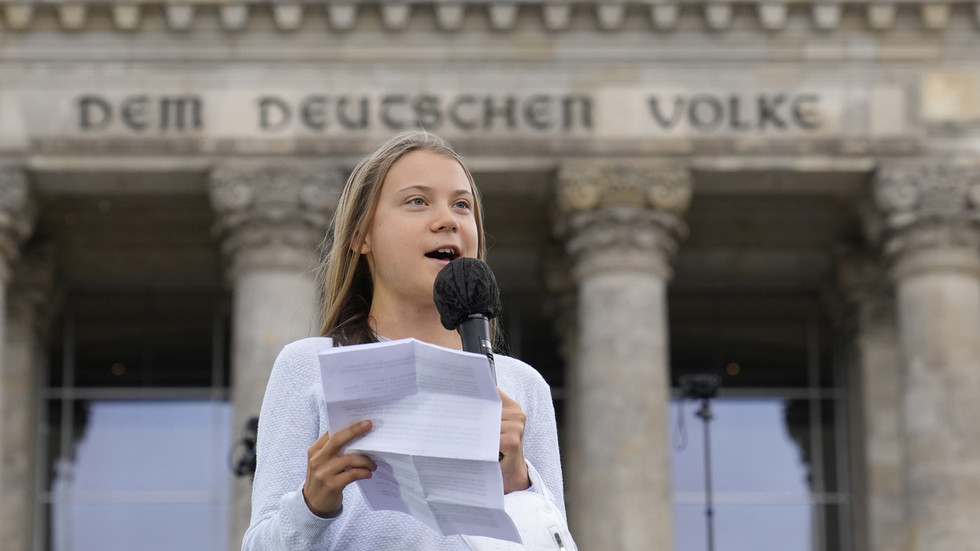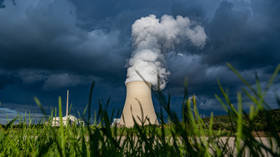
The climate activist has called for keeping reactors operating rather than using more coal-fired power amid Europe’s energy crisis

FILE PHOTO © AP / Michael Sohn
Climate activist Greta Thunberg has given her blessing for Germany to delay plans to shut down its last remaining nuclear power plants by the end of this year, saying the loss of their output amid Europe’s energy crisis would lead to more environmentally harmful alternatives.
“Personally, I think that it’s a very bad idea to focus on coal when this [nuclear power] is already in place, but of course, it’s a very infected debate,” the 19-year-old Thunberg told German public broadcaster ARD in an interview that’s set to air on Wednesday.
The Swedish teenager has previously spoken out against nuclear power, calling it “extremely dangerous, expensive and time-consuming.” When European Union lawmakers were set to vote last July to categorize nuclear power as “sustainable,” Thunberg voiced her opposition, saying, “No amount of lobbyism and greenwashing will ever make it green. We desperately need real renewable energy, not false solutions.”

However, with the Russia-Ukraine conflict leading to unprecedented sanctions and a drop in Russian natural gas shipments to Western Europe, Germany and other NATO countries are bracing for a potentially cold, dark winter. Just this week, Italy imposed new heating restrictions.
Germany, the European Union’s largest economy, introduced a series of limits on use of lighting and heating aimed at reducing gas consumption during the upcoming heating season. The measures include lowering the heating temperature in offices and public buildings, with the exception of social institutions such as hospitals, from 20 to 19 degrees Celsius.
Asked whether it would be better for the climate to keep Germany’s nuclear plants running, Thunberg replied, “It depends. If we have them already running, I feel it’s a mistake to close them down in order to focus on coal.”

Germany began the process of shutting down its nuclear power industry after Japan’s Fukushima reactor meltdowns in 2011. Former Chancellor Angela Merkel promised to phase out all of the country’s 17 reactors by the end of 2022. Just three of the units remain in service.
Berlin lawmakers said last month that they want to use coal-fueled power to get through the winter and keep at least two of the country’s remaining reactors on standby status, available to restart only if there is no other option available to avert blackouts. Following the sabotage of Nord Stream 1 and 2 natural gas pipelines, many EU nations including Germany no longer have the option to resume direct purchase of Russian gas, even in case of deep crisis.




